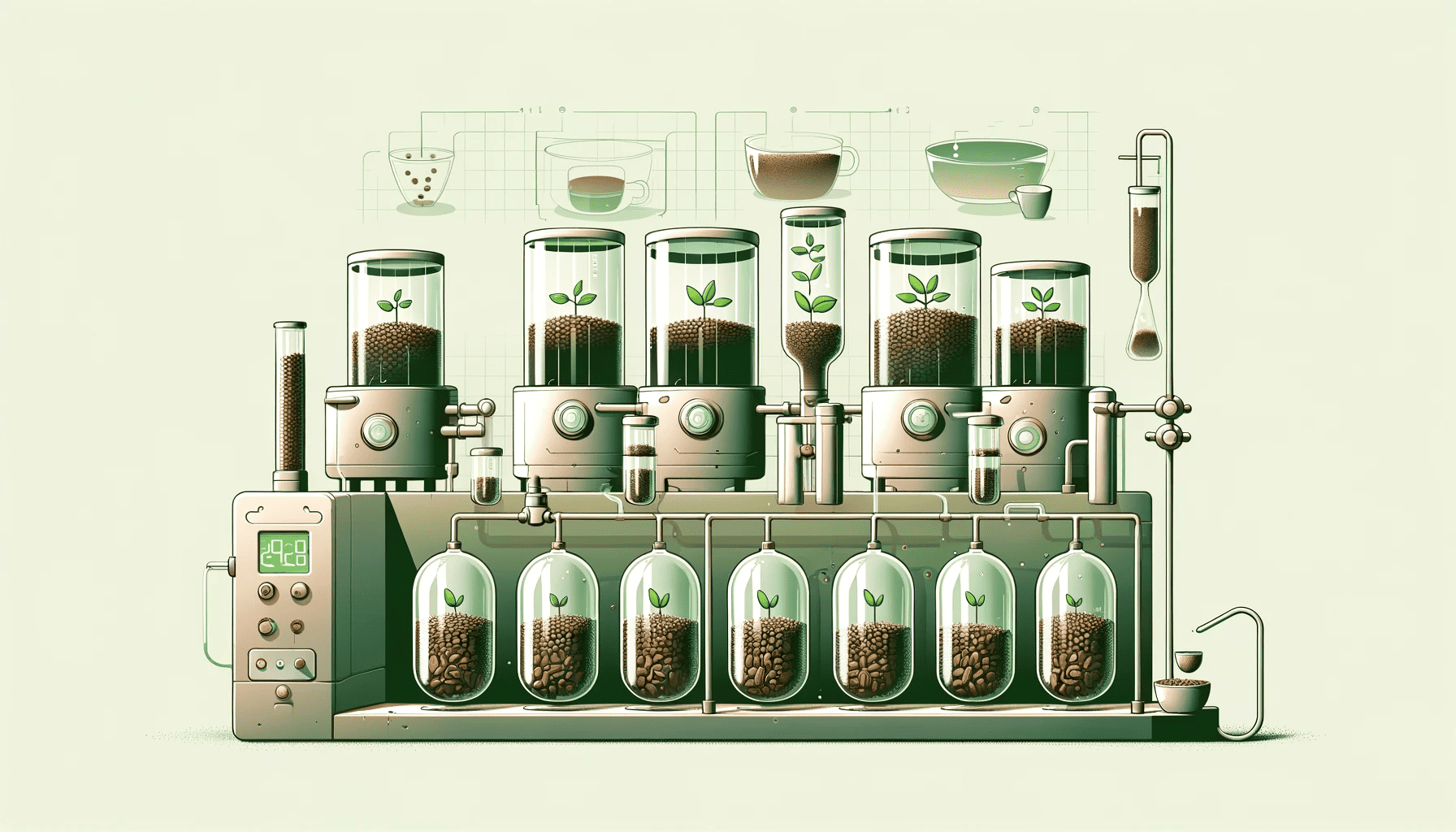
- 🌍 Satellites provide an unprecedented view of Earth, aiding in environmental monitoring, from deforestation to weather system tracking.
- 🔍 Utilizing a variety of wavelengths, EMIT can identify specific minerals on the surface.
- 🌱 This comprehensive mapping is useful in climate models as dust from these minerals can influence our planet’s climate.
Coffee, a globally beloved beverage, faces sustainability challenges due to climate change, land use, and increasing demand. This is why some scientists are turning to cellular agriculture for a solution. In a new study, researchers at the VTT Technical Research Centre of Finland grew coffee cells in bioreactors and then roasted them using different techniques. They eventually found that complex flavors and aromas of traditional coffee beans can be replicated in the lab, with some distinctions.
The world of coffee is on the cusp of a revolution
Although scientists have been toying with lab-grown coffee since the 1970s, a thorough investigation of how lab products taste and smell compared to traditional beans has been lacking. The process begins in a laboratory-scale bioreactor, where cells from Coffea arabica leaves are cultured. After freeze-drying, these cells are ground and roasted under various conditions. The final step is brewing the lab cells into beverages, which trained coffee experts tasted.
The researchers led by Heikki Aisala found that longer roasting times mimic the dark roast of conventional beans, a key factor in flavor perception. The cell-cultured coffee replicated the bitterness and sourness, although with a distinct aroma profile: the lab brew had more burned sugar and smokey smells.
The Maillard reaction, also known as the “browning phase”, occurs when sugars and proteins are subjected to heat during coffee roasting. The researchers found that important Maillard reaction products that give coffee its distinct flavor, such as guaiacol and several pyrazines, weren’t found in the cell-based drinks, though other Maillard reaction products were present.

And although these lab-grown coffee powders contain less caffeine than farmed beans, their caffeine content is twice as high as previous lab-grown versions.
| Attribute | Lab-Grown Coffee | Traditional Coffee |
|---|---|---|
| Dominant Odor/Flavor | Burned sugar-like and smoky, less roasted | Not specified in this study |
| Bitterness | Comparable levels | Comparable levels |
| Sourness | Comparable levels | Comparable levels |
| Caffeine Content | Lower (0.22 mg/g) | Higher (8.59 mg/g) |
These findings suggest that, although not identical, lab-grown coffee can replicate certain key aspects of traditional coffee’s taste and smell. However, further research is necessary to enhance the flavor profile of this innovative brew.
Why should you care about lab-grown coffee?
Traditional coffee production is a double-edged sword: a major contributor to climate change and a victim of its devastating effects. Deforestation and rising carbon emissions are juxtaposed against the struggles of coffee growers facing extreme weather conditions. By 2050, climate change could render half of the current coffee-growing land unproductive.
Lab-grown coffee, in contrast, is much more sustainable. It uses fewer resources, such as land and water, no pesticides, and significantly reduces transport emissions.
Despite the environmental benefits, the acceptance of beanless coffee remains uncertain. A 2019 survey revealed that 72% of Canadians would hesitate to switch to lab-grown coffee.
The findings appeared in the Journal of Agricultural and Food Chemistry.









